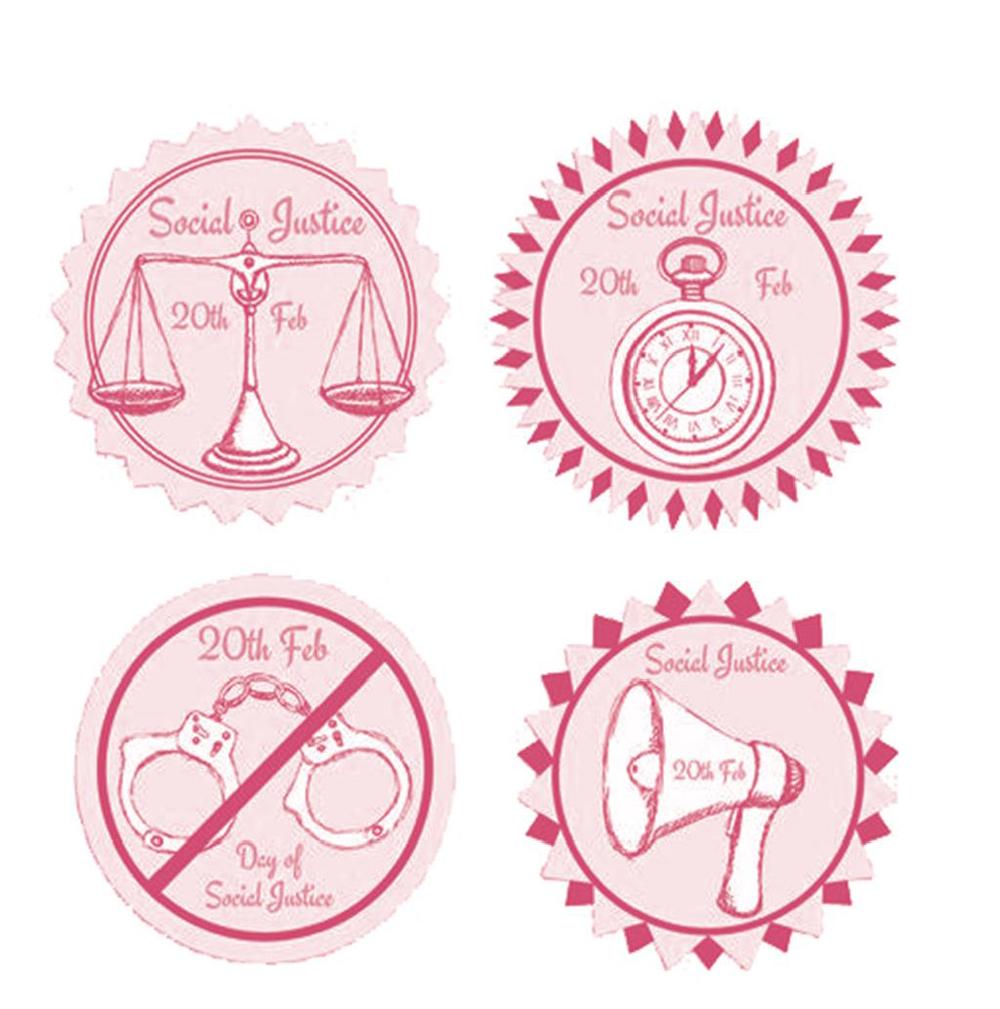正义如泉
2021-04-08张英
张英

Joseph Lowery, preacher and civil-rights campaigner, died on March 27th, aged 98.
As he ran home crying, the hot tears coursing down his cheeks, he knew exactly what he had to do. He would find his fathers pearl-handled. He knew where it was. Then he would run back to the family store while the white police officer was still there, the one who had told him “Get back, nigger! Dont you see a white man coming in the door?” and had smacked him in the belly with his nightstick—and he would shoot him dead.
Luckily his father stopped him in time, saving his child-self from being lynched by the outraged whites of Huntsville, Alabama. And it seemed to Joseph Lowery that a seed was planted that day, a seed of struggle. It could have made him hate: just one more insult among the many he was used to, being born black. Instead, it grew towards love. He had learned non-violence1. Several years later, he became a Methodist preacher. The New Testament repeated the lesson: do good to them that hate you. Or as he liked to put it later in one of his rhymes, not suppressing a smile, “An eye for an eye and a tooth for a tooth, will leave us all blind and gumminour food.”
That conviction grew all the stronger when he met Martin Luther King. (He liked the guy from the start, even though he was Baptist2.) Together in 1957 they founded the Southern Christian Leadership Conference3 that led, with prayers, sit-ins and marches, the civil-rights campaigns of the 1960s: for desegregated lunch counters, for equality in hiring and education, for the vote. When Martin was killed, at 39, in 1968 the SCLC fell on hard times for a decade, but in 1977 he took over as president and broadened what it did. Now it raised its voice against poverty and discrimination in general, against police brutality and the death penalty, as well as for peace in all corners of the world. Justice would roll down like waters, and righteousness like a mighty stream.
He felt no fear in speaking truth to power. Both Jimmy Carter and Bill Clinton felt the hot lash of his tongue for failing to raise up people out of poverty. Both Bushes, senior and junior, were scolded publicly over Iraq: for war, billions more, but no more for the poor. After the march on Selma in 1965 he presented a voting petition to Governor George Wallace—going like Moses through the Red Sea, through a Blue Sea of state troopers—and told him frankly that God would hold him accountable. Though he might seem a mild fellow, with his spectacles and jokes, he had a fire in him that fire-hoses couldnt wash out. For years he had thought that social justice on Earth had little to do with the kingdom of Heaven. Now he knew that a ministers job was also to make Earth more heavenly.
Besides, non-violence had wrought a spiritual change in him. He had become a new creature, perplexing to his enemies, as everyone in the movement had. The first proof came early. In Mobile in 1955 he and another minister rode one day in the front of the bus to Prichard, a more racist town. When a white passenger came up to bawl them out he quietly told him to sit down, and the man obeyed. Pretty soon, no black person on Mobiles buses had to give up his seat to a white. After this success Martin asked him to help with the year-long bus boycott in much bigger Montgomery, which in 1956 led to the desegregation of buses all over America. Patience paid off. Love worked. They were crazy, perhaps; but good crazy.
Time and again he campaigned. He decided to take a train back to Nashville on the night his motel room in Birmingham was blown apart. He and his wife Evelyn escaped death when Klansmens4 bullets whooshed over his head, and through their car, in Decatur, where he was supporting a mentally disabled black man.
In each of these trials the old anger would flash through him, and with prayer he would hold it back. The hardest point came on that spring day when Martin was shot in Memphis, a rare day when he was not at his side. He curbed his grief by pouring energy into the two big United Methodist churches, Central and Cascade, which he ran in Atlanta for many years, building up membership mightily. But he poured even more into the SCLC, Martins organisation as he saw it, by keeping that flame burning and by reminding Americans what sort of man his friend had been. A doer, not a dreamer; a revolutionary who challenged the capitalist system and the powers that be5, whose birthday should be marked every year with marches against the injustice and inequality that still stalked the land. The job was far from finished. And they had marched too long, bled too profusely, to give up striving now.
At Barack Obamas inauguration he was asked to give the benediction. He was delighted to; that way, he would get the last word. Time for a rhyme, but a heartfelt one. He prayed for a day when black would not be asked to get back, brown could stick around, yellow would be mellow, and white would embrace what was right. “The Star-Spangled Banner” was the only thing that followed him.
As an anti-war campaigner it was not a piece he liked, with all that “bombs bursting in air” stuff. But it sounded better than ever then. It was not the anthem that had changed; the country had changed. Say amen! And amen! In the fierce cold of that January day, hot tears coursed down his cheeks.
约瑟夫·洛韦里,牧师兼民权运动领导者,逝于2020年3月27日,享年98岁。
小约瑟夫一路哭着跑回家,热泪顺着他的脸颊流淌。他非常清楚自己要做什么,他要找到父亲那把珍珠贝母手枪,他知道枪在哪儿。然后他要跑回自家商店,因为那个白人警察还待在那里。那个警察刚冲他吼道:“赶紧滚!黑鬼,没瞧见白人进来了吗?”说罢,一记警棍就抽在了他肚子上。小约瑟夫想要开枪打死他。
幸好父亲及时阻止了他,免得孩子被愤怒的亚拉巴马州亨茨维尔白人们私刑处死。从那天起,小约瑟夫心中似乎埋下了一颗抗争的种子。这颗种子本可能开出仇恨之花:这只是他生为黑人遭受过的诸般侮辱之一。但是,种子最终选择了向爱而生。他领悟了非暴力理念的精髓。几年后,他成为一名卫理公会的牧师。《新约》中的教导再次在他脑海浮现:善待恨你们的人。正如他之后微笑着说出的那句诗,“以眼还眼,以牙还牙,只会让我们丧失光明,自食其果”。
在他遇见马丁·路德·金后,这种信念变得更加坚定。(他从一开始就喜欢那家伙,尽管马丁·路德·金是浸礼会教徒。)1957年,他们共同创立了南方基督教领袖会议,通过祈祷、静坐和游行等活动,领导20世纪60年代的民权运动:争取共用餐台,为了争取教育和就业公平,也为了争取投票权。1968年,马丁遇刺身亡,年仅39岁。此后十年,南方基督教领袖会议举步维艰。但在1977年,约瑟夫成为该组织的领袖,并扩大了该组织的活动范围。现在,该组织发声反对贫困和各种歧视、反对警察暴力执法和死刑,呼吁世界和平。他们坚信:公道会奔流似水,正义将喷涌如泉。
他敢于向当权者直言。他痛批吉米·卡特和比尔·克林顿没能成功帮助民众脱贫。他曾在公开场合谴责布什父子对伊拉克发动战争,战争耗费了数十亿美元,而这对父子给予穷人的帮扶资金却少之又少。1965年,塞尔玛大游行爆发后,约瑟夫向乔治·华莱士州长呈递了一份投票请愿书,就像摩西穿过红海一样,他穿过一片亚拉巴马州警察组成的蓝海,直截了当地告诉州长:上帝会让他为此负责。虽然他戴着眼镜,爱说笑话,看上去温和谦恭,内心却燃烧着一团火,一团任何冷水也浇灭不了的烈火。多年来,他一直认为人间的正义与天堂几乎无关。现在,他终于明白,把人间变得更像天堂,这也是牧师的职责。
此外,非暴力理念也改变了他的精神境界。如同之前所有参与了这场民权运动的人一样,约瑟夫重获新生,这让他的对手困惑不已。早有迹象可以佐证他的改变。1955年的一天,在莫比尔市,他和一位牧师坐在了巴士的前排,前往普里查德,一个种族主义更加泛滥的城镇。一名白人乘客上车后就开始轰他们下车,他却平静地让其坐下,那人最终照做了。很快,在莫比尔市的巴士上,黑人不必再给白人让座。这次成功的经历之后,马丁让他帮忙在更大的城市蒙哥马利推进巴士抵制运动,这场运动持续了一年左右,最终于1956年促成当局在全美废除了公交種族隔离。耐心终得正果,仁爱遂见良效。他们或许是疯了;但是,他们疯得漂亮!
他一次又一次地参加运动。一天晚上,他决定乘火车回到纳什维尔,正是在那天晚上,他在伯明翰汽车旅馆订的房间遭遇了炮弹袭击。在迪凯特,他为一名有智力缺陷的黑人男子发声。3K党党徒射出的子弹击穿汽车,从他的头顶呼啸而过。幸运的是,他和妻子伊芙琳得以幸免于难。
他每一次面临审判时,旧日的怒火都会涌上心头,但祈祷过后,又会重归平静。最艰难的时刻是那个春天马丁在孟菲斯遇刺,二人平时形影不离,不巧的是,那天他不在马丁身旁。之后他化悲愤为力量,全身心地投入中央会区和喀斯喀特会区两大教会联合卫理公会教堂的管理建设工作之中。他在亚特兰大时,已管理这两所大型教堂多年,拥趸众多。他将南方基督教领袖会议视作马丁的心血,为之投入了更多精力,正义的火种得以延续。他要告诉所有美国人,他的挚友马丁曾是怎样的一个人。作为一名实干者,而非梦想家,马丁是一位敢于挑战资本主义制度和强权的革命家。只要追求正义和平等的斗争还在继续,人们就应记住他的诞辰。征途漫漫,他们行已至远,伤已至深,不能轻言放弃。
在巴拉克·奥巴马的就职典礼上,他受邀上台祝祷。他乐意如此,这样他可以为典礼致结束语。那是属于他的诗歌时光,他的言语真挚而诚恳。他祈祷终有一天,非裔美国人不再受排挤;美洲原住民不必背井离乡;亚裔不再背负刻板印象而悠然自得;白种人不再拿有色眼镜看人。在他祝祷之后,现场演奏起了美国国歌。
作为一名反战运动者,他并不喜欢国歌中“炸弹轰轰作响”之类的歌词,但此时它比以往顺耳了。改变的并不是国歌,而是国家本身。一月的凛凛冬日,他重复祷告着“阿门”,两行热泪滚落脸颊。 □
